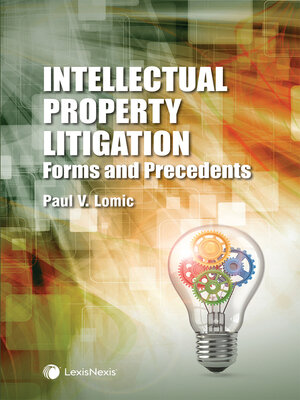
Sign up to save your library
With an OverDrive account, you can save your favorite libraries for at-a-glance information about availability. Find out more about OverDrive accounts.
Find this title in Libby, the library reading app by OverDrive.



Search for a digital library with this title
Title found at these libraries:
| Library Name | Distance |
|---|---|
| Loading... |
From patent litigation, trademark appeals and copyright infringement, to critical interlocutory proceedings and appeals to the Federal Court of Appeal, the ins and outs of intellectual property (IP) litigation can be challenging to master. Thankfully, for those who need to navigate this ever-shifting landscape, there's a brand new publication: Intellectual Property Litigation: Forms and Precedents.
Featuring more than 25 chapters written by IP practitioners who are experts in their field, this volume promises to become an invaluable addition to the libraries of IP lawyers across the country.
Features and Benefits
Intellectual Property Litigation: Forms and Precedents provides a practical collection of precedents and checklists for litigating IP-related disputes along with extensive commentary devoted to the law and practice of IP litigation. The text was authored by a team of over 25 leading intellectual property and commercial litigators led by Paul Lomic of Lomic Law and is divided into two parts. The first section offers insightful commentary as well as useful checklists and precedents for cases on the merits, while the second part deals with the procedural aspects of IP litigation, including case management, bringing motions and conducting e-discovery.
Since it offers forms and precedents for a wide range of IP-related disputes, this book will be indispensable to IP lawyers who will benefit from:
Valuable resource
Intellectual Property Litigation: Forms and Precedents will be an especially useful reference for anyone interested in or representing clients in IP-related disputes, including IP lawyers, litigators and government lawyers (particularly those working in IP areas such as the Patent Office). Law libraries should also stock this book as lawyers, students and judges will find its content valuable.







